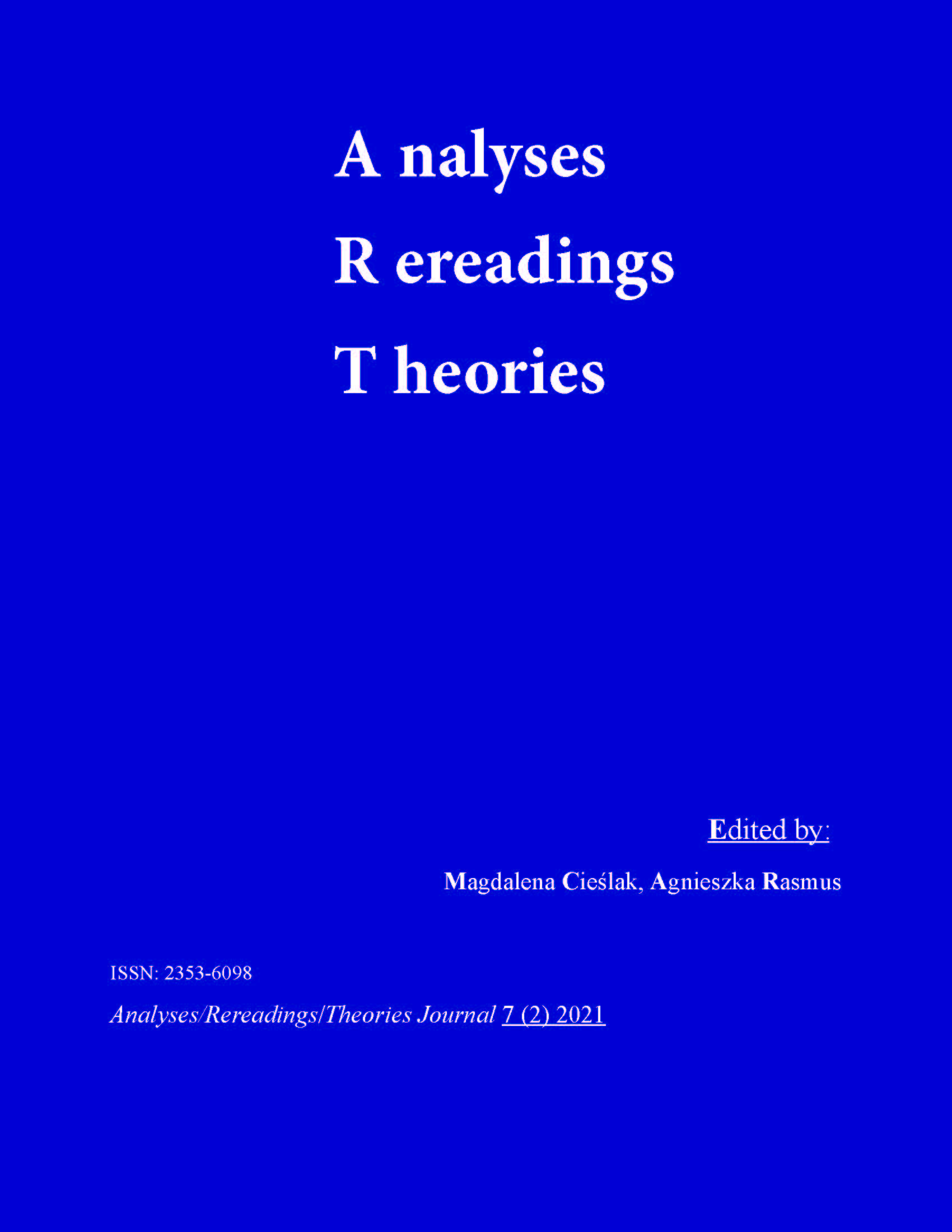Charles Dickens and Colonial Expansionism ‘Obscured’ in "When We Were Orphans" by Kazuo Ishiguro
DOI:
https://doi.org/10.18778/2353-6098.7.13Keywords:
Charles Dickens, Great Expectations, Kazuo Ishiguro, When We Were Orphans, colonialismAbstract
The intertextual associations with Charles Dickens’s novel Great Expectations in When We Were Orphans seem unobvious. In this paper I will show that Dickensian motifs are nonetheless noticeable in Ishiguro’s novel and, relating to Dickens’s fictionalised biography by Peter Ackroyd, some events from his turbulent life can also be recognised. The concept of “obscurity” of the image that derives from Emanuel Levinas, and which was later elucidated by Homi K. Bhabha, will be employed in my analysis. Ishiguro seems to conceal a true picture of British colonialism, drawing the reader’s attention to Christopher Banks’s futile mission to find his missing parents, remaining myopic to the real evil around him. The enunciation of “the unspoken,” that is to say, the history of colonial power dynamics will be particularly clear while elaborating on the story of Christopher’s mother, Diana Banks. I will also demonstrate that When We Were Orphans accentuates the issue of the binary opposition between the West and the East, which explicitly alludes to Edward Said’s politics of bipolarity.
References
Ackroyd, Peter. Dickens. London: Minerva, 1991.
Google Scholar
Bain, Alexander M. “International Settlements: Ishiguro, Shanghai, Humanitarianism.” Novel: A Forum on Fiction 40:3 (2007): 240–264.
Google Scholar
DOI: https://doi.org/10.1215/ddnov.040030240
Bhabha, Homi. K. The Location of Culture. London: Routledge, 1994.
Google Scholar
Cody, David. “Kipling’s Imperialism.” The Victorian Web, 1988. https://victorianweb.org/victorianweb.org. Accessed 17 April 2021.
Google Scholar
Dickens, Charles. Great Expectations. London: Penguin Books, 1994.
Google Scholar
Finney, Brian H. “Figuring the Real: Ishiguro’s When We Were Orphans.” Jouvert: A Journal of Postcolonial Studies 7:1 (2002). https://legacy.chass.ncsu.edu/jouvert. Accessed 12 June 2021.
Google Scholar
Ge, Nan. “Memory in Kazuo Ishiguro’s When We Were Orphans: The Orphanage in Time.” Core 47 (2019): 1–18.
Google Scholar
DOI: https://doi.org/10.1007/978-3-476-05728-0_8807-1
Ishiguro, Kazuo. When We Were Orphans. London: Faber & Faber, 2000.
Google Scholar
LaCapra, Dominick. History in Transit. Experience, Identity, Critical Theory. London: Cornell University Press, 2004.
Google Scholar
DOI: https://doi.org/10.7591/9781501727467
Lindqvist, Sven. The Dead Do Not Die: Exterminate All the Brutes and Terra Nullius. New York: The New Press, 2014.
Google Scholar
DOI: https://doi.org/10.2307/jj.26193393
Mickalities, Carey. “Kazuo Ishiguro and the Remains of Empire.” Critique: Studies in Contemporary Fiction 60:1 (2019): 111–124.
Google Scholar
DOI: https://doi.org/10.1080/00111619.2018.1487827
Pajewski, Janusz. Historia powszechna 1871–1918. Warszawa: Państwowe Wydawnictwo Naukowe, 1994.
Google Scholar
Ringrose, Christopher. “‘In the end it has to shatter’: The Ironic Doubleness of Kazuo Ishiguro’s When We Were Orphans.” Kazuo Ishiguro: New Critical Visions of the Novels. Ed. Sebastian Groes and Barry Lewis. London: Palgrave Macmillan, 2011, pp. 171–183.
Google Scholar
DOI: https://doi.org/10.1007/978-0-230-34526-3_14
Said, Edward, W. Orientalism. London: Penguin, 2003.
Google Scholar
Toma, Irina. “Contemporary Exile in Kazuo Ishiguro’s Novel When We Were Orphans.” A Journal of Literary Studies and Linguistics LXI:2 (2009): 61–66.
Google Scholar
Webley, Alyn. “‘Shanghaied’ into Service: Double Binds in When We Were Orphans.” Kazuo Ishiguro: New Critical Visions of the Novels. Edited by Sebastian Gross and Barry Lewis. London: Palgrave Macmillan, 2011, pp. 184–195.
Google Scholar
DOI: https://doi.org/10.1007/978-0-230-34526-3_15
Published
Versions
- 2023-11-29 (2)
- 2023-11-29 (1)
How to Cite
Issue
Section
License

This work is licensed under a Creative Commons Attribution-NonCommercial-NoDerivatives 4.0 International License.









